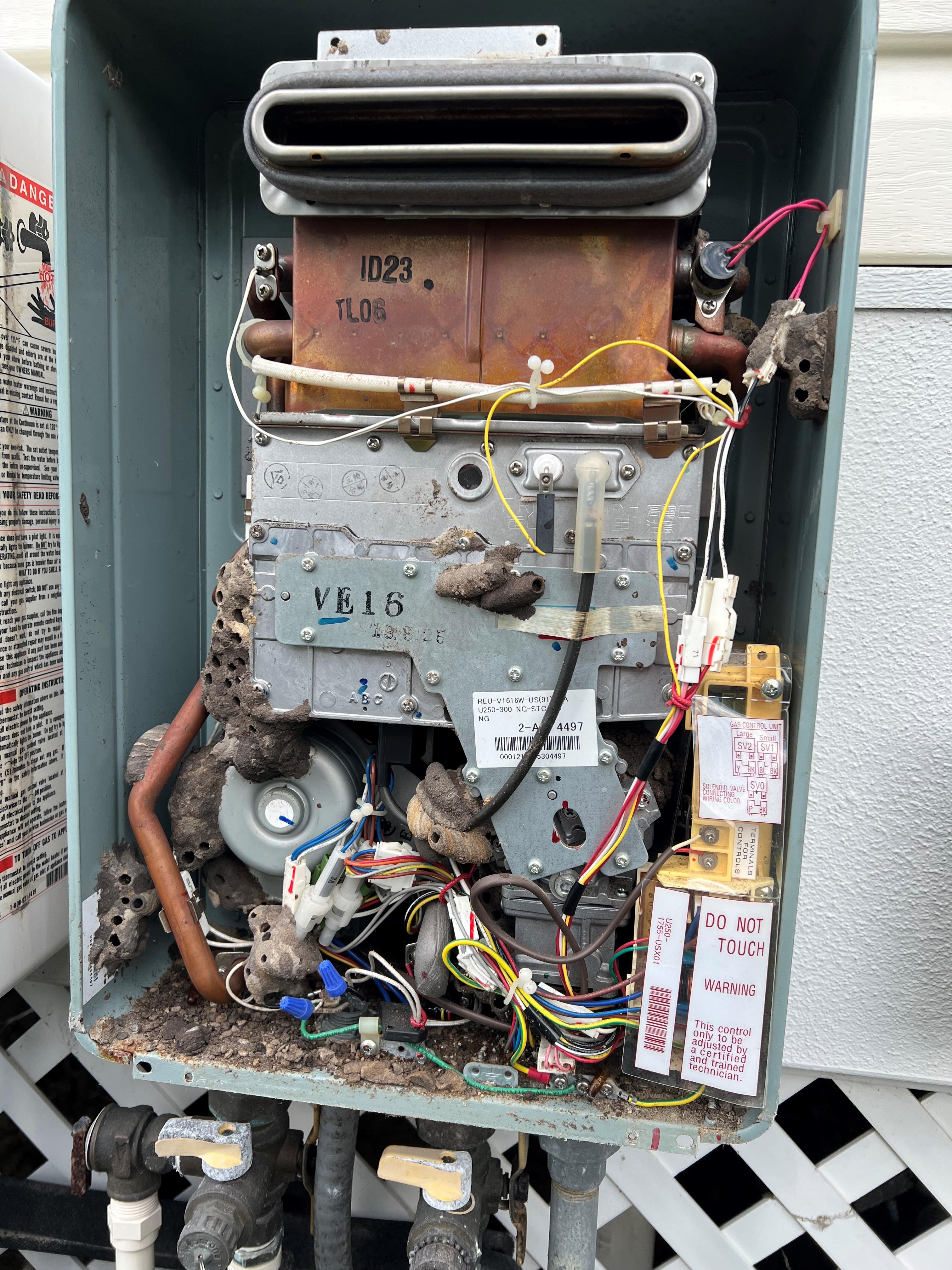
It’s a riddle: How are bees and air conditioners linked?
Nobody likes bee stings. A wasp or hornet sting is even worse than a bee sting.
Insect stings hurt, and they can be dangerous.
In the United States, it's estimated that between 5 and 7.5% of Americans are hypersensitive to insect stings. These allergies can lead to severe reactions like huge, itchy hives all over the body, nausea, vomiting, and swelling of windpipes leading causing difficulty in breathing. In some rare cases, bee, wasp, or hornet stings result in anaphylactic shock which can lead to death.
From 2011 to 2021, 788 people died from bee or wasp stings, an average of 72 people per year.
But you may be asking, what do bee stings have to do with air conditioners?
You may not have a clue, or you may have observed the connection yourself. Can you answer the riddle?
What Do Air Conditioners, Water Heaters, and Insect Stings Have in Common?
Air conditioners are a godsend during the sweltering summer months. Tankless water heaters heat water on demand, saving you money.
But did you know that these pieces of equipment can also attract some unwelcome guests?
Bees, wasps, and hornets are known to establish nests within air conditioning units and tankless water heaters, posing potential risks and discomfort.
The Buzzing Problem
While there are no specific statistics on how often bees and wasps make nests in air conditioners, it's a common problem that many homeowners face. Just ask any tech!
The warmth generated by the AC unit, the vibrations and hum it produces, and the sheltered location it provides make it an attractive nesting spot for these insects. The vent slats are both a perfect access point and a place of concealment for buzzing bees and wicked wasps.
Insects sometimes build nests that hang from the bottom of the unit, close to the building. It's not always visible from the front, so make sure not to touch it without giving it a visual inspection from all angles first!
The Impact on Your Air Conditioner or Water Heater
BEE-lieve it or not, insects nesting in your air conditioner are not just scary, but they can cause real issues with your equipment.
Blocked Airflow
Nests built inside the AC vents or other components can block airflow, reducing system efficiency and increasing energy consumption.
Damage to the System
Wasps can chew through ductwork, insulation, and wiring, causing potential damage to the system and posing a fire hazard.
Health Risks
If your home was being threatened with destruction, you would fight back. So will bees and wasps. They sting to protect their hives which can cause pain at the very least, and severe allergic reactions in some people.
What can you do to prevent stinging insects from nesting there?
Don’t worry. You can prevent bees and wasps from nesting in your air conditioner or tankless water heater by doing these things:
Use a Water Trap:
One of the easiest ways to deter bees and wasps is to hang water traps near your unit. These traps use floral scents to attract and trap bees or wasps, eventually drowning them and keeping them from building a home in your unit.
Hang a Fake Nest:
Many people believe that hanging a fake wasp nest will keep other wasps away. Fake nests are generally made of paper and can be easily hung from your unit or a nearby tree or shrub. They’re available from home improvement stores and online retailers.
The theory is that wasps are fiercely territorial animals and will not establish a nest close to another existing colony. Attaching a fake wasp’s nest to your air conditioner can be a surprisingly effective deterrent.
Get Rid of What Attracts Them:
Certain scents may attract insects. Make sure you don’t have rotting fruit, garbage canisters, or recycling bins near your air conditioners.
Seal Gaps:
Keep wasps, bees, and other undesirable guests out of your air conditioner by caulking up any gaps that exist between the unit and the wall of your home. Check to make sure the seals are tight in the spring before your air conditioner starts running all the time, and check again in the fall when other bothersome critters – mice - mice, might be looking for a place to winter!
We need them, but NOT in our air conditioners or tankless water heaters!
While bees and wasps play crucial roles in our ecosystem, we don’t want them in our air conditioners! By understanding why they are attracted to these units and taking preventative measures, we can ensure that our air conditioners remain bee and wasp-free, allowing us to enjoy our summer in comfort and peace.
If you suspect a large infestation, or if the nest is hard to reach, it's always safer to call a professional pest control service. They have the necessary equipment and expertise to remove the nest safely and effectively. ServiceOne Air Conditioning and Plumbing techs are brave and smart, but they aren’t professional bug-handlers!
If you think we’re kidding about this, check out this picture of mud hornet nests inside a tankless water heater taken by Tom Geromanos, our plumbing field manager.

Call ServiceOne Air Conditioning and Plumbing. We’ll take the sting out of any problem!

